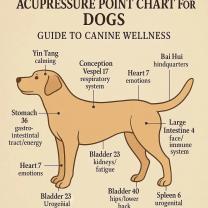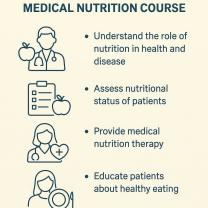Is plastic surgery good or bad?
The assessment of whether plastic surgery is "good" or "bad" depends on individual perspectives, motivations, and the specific context in which it is considered. Plastic surgery encompasses a broad range of procedures, including cosmetic and reconstructive surgeries, each with its own set of pros and cons. Let's explore some perspectives on the pros and cons of plastic surgery:
Pros:
Enhancement of Physical Appearance:
- Plastic surgery can help individuals enhance or alter their physical features, leading to improved self-esteem and confidence.
Reconstruction and Restorative Benefits:
- Reconstructive plastic surgery can restore normal functioning and appearance in individuals who have experienced trauma, accidents, or congenital deformities.
Psychological Well-being:
- For some individuals, achieving the desired physical appearance through plastic surgery can positively impact mental health, reducing feelings of self-consciousness and improving overall well-being.
Career and Social Implications:
- In certain professions or social environments, physical appearance can play a role in success and acceptance. Plastic surgery may help individuals align with societal norms and expectations.
Medical Benefits:
- Some plastic surgery procedures have medical benefits beyond aesthetics. For example, rhinoplasty may improve breathing, and breast reduction surgery can alleviate physical discomfort.
Cons:
Health Risks:
- All surgeries carry inherent risks, including infection, scarring, and adverse reactions to anesthesia. Complications can arise, and the recovery process may be challenging.
Unrealistic Expectations:
- Some individuals may have unrealistic expectations about the outcomes of plastic surgery. This can lead to dissatisfaction if the results do not meet their expectations.
Social and Ethical Considerations:
- There are societal concerns about the promotion of unrealistic beauty standards and the pressure on individuals to conform to these standards through surgery. Ethical issues may also arise if surgery is performed for non-medical reasons.
Financial Costs:
- Plastic surgery can be expensive, and the costs may not be covered by insurance, especially for cosmetic procedures. Financial strain can be a significant drawback for many individuals.
Psychological Impact:
- While plastic surgery can have positive psychological effects for some, it may also lead to dissatisfaction, regret, or the development of body dysmorphic disorders in others.
Addiction and Over-reliance:
- Some individuals may develop an addiction to plastic surgery, continuously seeking additional procedures. Over-reliance on surgery to address self-esteem issues may be a sign of underlying psychological issues.
Conclusion:
The assessment of plastic surgery as good or bad is subjective and depends on the individual's goals, motivations, and the specific circumstances surrounding the procedure. It's essential for individuals considering plastic surgery to thoroughly research the potential benefits and risks, consult with qualified professionals, and carefully evaluate their own expectations and motivations before making a decision. Additionally, societal discussions on the broader implications of plastic surgery, including ethical and cultural considerations, contribute to the ongoing debate on its merits and drawbacks.
Weighing the Benefits and Risks of Plastic Surgery Procedures
Plastic surgery, encompassing both reconstructive and cosmetic procedures, has become increasingly prevalent in today's society. However, it is crucial to carefully weigh the potential benefits and risks before undergoing any plastic surgery procedure.
Benefits
Enhancing Self-Image and Confidence: Plastic surgery can improve self-esteem and body image by addressing perceived flaws or imperfections, leading to increased confidence and social engagement.
Restoring Function and Mobility: Reconstructive plastic surgery can restore function and mobility following injuries, illnesses, or congenital defects.
Alleviating Pain and Discomfort: Plastic surgery can alleviate pain and discomfort associated with conditions like breast hypertrophy or facial deformities.
Risks
Complications: Plastic surgery, like any medical procedure, carries inherent risks, including bleeding, infection, scarring, and anesthesia-related complications.
Unrealistic Expectations: Unrealistic expectations about the outcome of plastic surgery can lead to disappointment and dissatisfaction.
Psychological Impact: Plastic surgery may not always improve self-esteem and confidence, and in some cases, it can lead to psychological distress or body dysmorphic disorder.
Evaluating Individual Needs, Goals, and Expectations for Plastic Surgery
Before considering plastic surgery, individuals should carefully evaluate their needs, goals, and expectations.
Identify the Motivation: Understanding the underlying reasons for seeking plastic surgery is crucial to ensure clear and realistic expectations.
Assess Personal Goals: Clearly define the desired outcomes and how they align with overall self-image and life goals.
Consider Alternative Options: Explore non-surgical alternatives, such as lifestyle changes, counseling, or non-invasive cosmetic procedures, before opting for surgery.
Seeking Professional Guidance and Making Informed Decisions about Plastic Surgery
Consulting with a qualified and experienced plastic surgeon is essential for making informed decisions about plastic surgery.
Thorough Consultation: Engage in a comprehensive consultation to discuss medical history, expectations, and potential risks and benefits.
Realistic Assessment: Seek an honest assessment of the achievable outcomes and potential limitations of the procedure.
Informed Consent: Carefully review and understand the informed consent document before proceeding with the surgery.
In conclusion, plastic surgery can be a transformative experience, but it is essential to approach it with careful consideration, realistic expectations, and informed decision-making. Seeking professional guidance and thoroughly evaluating individual needs and goals are crucial steps in ensuring a positive and successful plastic surgery journey.













